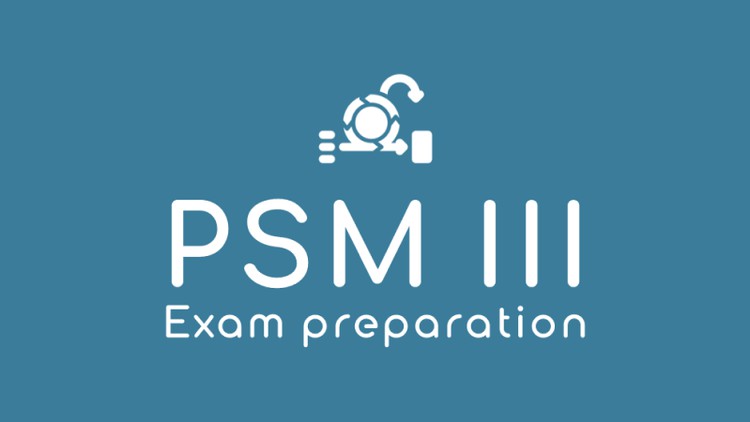PSM III : 5 pratical tests for Professional Scrum Master 3
90 questions based on the Scrum Guide 2020 to pass the Professional Scrum Master 3 (PSM III) Certification
4.50 (18 reviews)

322
students
98 questions
content
Feb 2024
last update
$44.99
regular price
What you will learn
The role of the Scrum Master as a servant-leader
Preperation and advice for taking the Professional Scrum Master 3 (PSM III)
An in-depth review of the questions and topics you may encounter during the Professional Scum Master 3 (PSM III) certification
About the Professional Scrum Master 3 (PSM III) certification with all the preparation needed to take the assessment
Questions, answers and detailed explanations of the answers
Advance your Scrum knowledge
Empiricism
The Scrum roles and in particular their respective boundaries of responsibilities
Self-organization, both of the Scrum Team as well as of the Developers
The Scrum Values
Definition of Done
Related Topics
5118682
udemy ID
1/28/2023
course created date
2/22/2023
course indexed date
Bot
course submited by